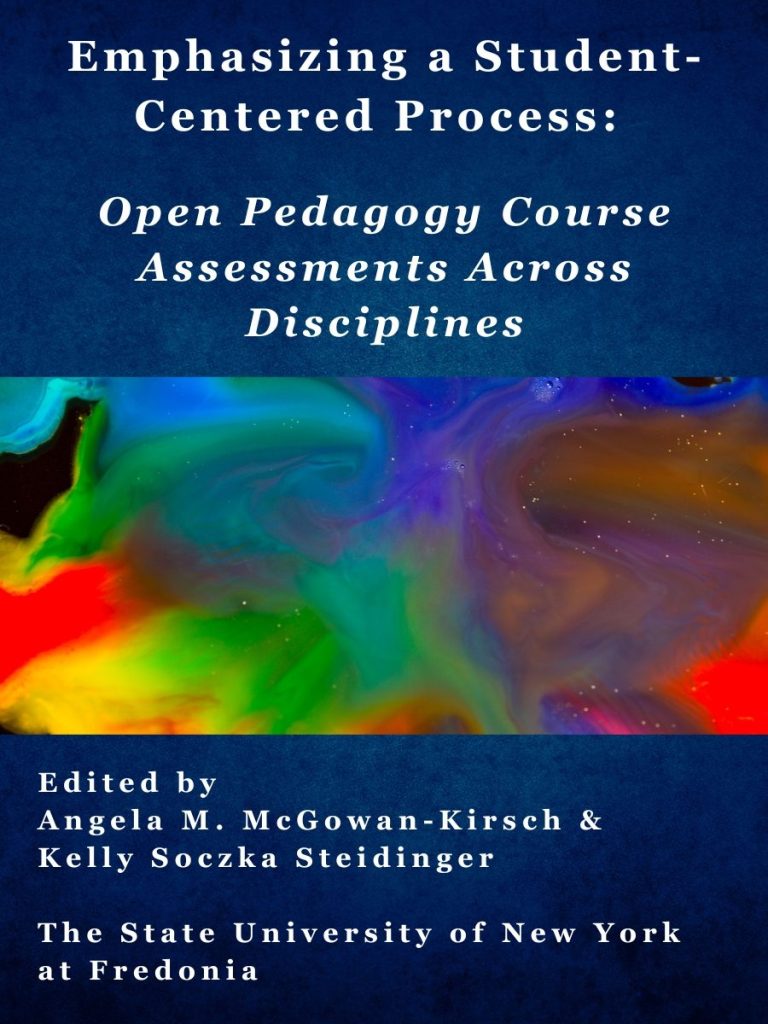Redesigning one's pedagogical approach in a given course is not a task taken lightly. But BEFORE choosing Open Education Resources (OER) to fit in your course, it is worth considering:
Designing your syllabus around a particular textbook or resource is not necessary when using OER; in fact, that flexibility and control is one of the biggest benefits of OER adoption.
Interview with Rajiv Jhangiani, March 30, 2016
Books
 Emphasizing a Student-Centered Process
by
Angela M. McGowan-Kirsch (Editor); Kelly Soczka Steidinger (Editor)
Emphasizing a Student-Centered Process
by
Angela M. McGowan-Kirsch (Editor); Kelly Soczka Steidinger (Editor)
Articles
By its nature, Open Pedagogy allows faculty to design courses to be more equitable and inclusive. One of the central tenets of instructional inclusion is to consider the context of the learners in designing course materials. Open pedagogy allows greater freedom for faculty to curate materials with their own students' context in mind.
These tools can be used to help frame a course with equity and inclusion in mind:
EO/AA Statement | Privacy Statement | 103 Libraries Complex Crabbe Library Richmond, KY 40475 | (859) 622-1790
©
